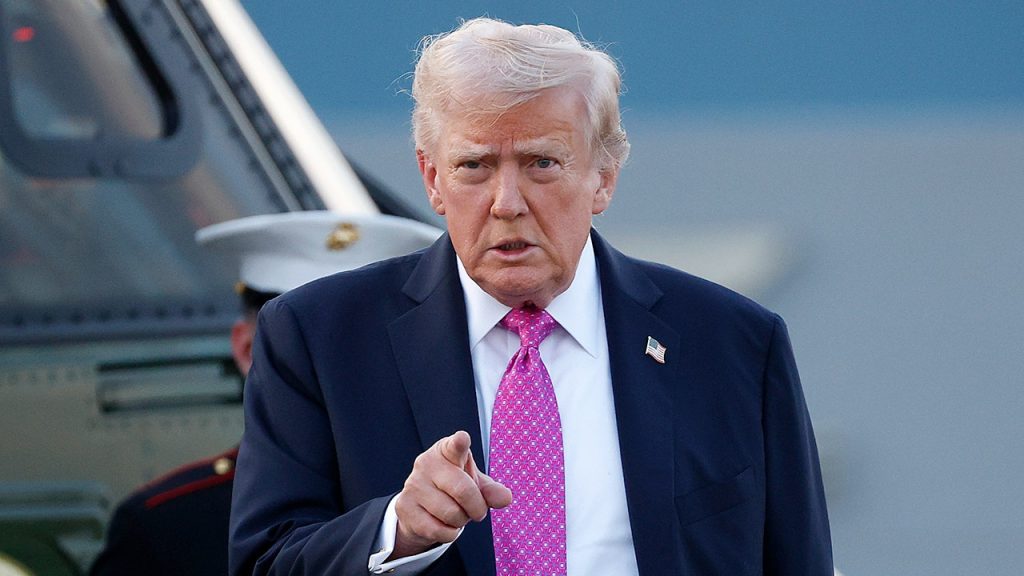Trump Signals Potential Effort to Reclaim Bagram Airfield from Taliban
In a surprising announcement during a joint press appearance with British Prime Minister Kier Starmer, President Donald Trump revealed that his administration is attempting to regain control of Bagram Airfield in Afghanistan. “We’re trying to get it back,” Trump stated, providing little additional context but suggesting that the Taliban, who seized control of the facility during the 2021 U.S. withdrawal, “need things from us.” This unexpected declaration marks a potential shift in U.S. policy toward Afghanistan, where American forces ended a two-decade military presence three years ago under the Biden administration’s withdrawal plan.
The former president, who has consistently criticized the handling of the Afghanistan withdrawal, framed the potential recovery of Bagram as strategically significant, particularly regarding regional security concerns. “We want that base back, but one of the reasons we want the base is, as you know, it’s an hour away from where China makes its nuclear weapons,” Trump explained. This comment highlights his administration’s focus on countering Chinese influence, positioning the Afghan base as a potential monitoring post for Chinese nuclear activities. The statement represents what Trump himself characterized as “a little breaking news,” though at the time of reporting, the White House had not provided additional details or confirmation of any formal negotiations with the Taliban regime.
Trump’s announcement comes against the backdrop of continued instability in Afghanistan and ongoing debates about the consequences of America’s withdrawal. The Taliban’s control of the country has raised significant humanitarian and security concerns, while the group has frequently showcased captured American military equipment in public displays. Bagram Airfield, once the epicenter of U.S. military operations in Afghanistan, served as a crucial strategic asset during America’s longest war. Its abandonment in 2021 became a powerful symbol of the end of the U.S. military presence in the country and has remained a point of contention in American political discourse about the war’s conclusion.
The suggestion that the U.S. might be leveraging something the Taliban “needs” in exchange for the airbase points to a possible diplomatic or economic negotiation rather than military action. However, any engagement with the Taliban presents significant challenges given their designation as a terrorist organization and their continued implementation of restrictive policies, particularly regarding women’s rights and political freedoms. International recognition of the Taliban government remains limited, complicating any potential formal negotiations. Without further details from the administration, it remains unclear what specifically the U.S. might offer in exchange for access to the strategic facility or whether preliminary discussions have already taken place.
From a geopolitical perspective, reestablishing an American presence at Bagram would represent a dramatic reversal of the withdrawal policy and potentially signal a renewed U.S. military footprint in Central Asia. The reference to China’s nuclear program indicates that competition with Beijing factors significantly into this strategic thinking. Afghanistan’s location, sharing borders with China, Iran, Pakistan, and Central Asian nations, has long made it a focal point in regional power dynamics. The suggestion that the base could serve as an observation post for Chinese nuclear activities underscores ongoing tensions between Washington and Beijing across multiple domains, from military capabilities to economic competition.
As this developing story unfolds, numerous questions remain about the feasibility, scope, and specific objectives of any effort to reclaim Bagram. The Biden administration’s withdrawal from Afghanistan faced significant criticism for its execution, particularly during the chaotic final evacuation operations from Kabul Airport. Trump’s announcement appears designed to contrast his approach with his predecessor’s, positioning his administration as taking steps to reverse what he has consistently characterized as a foreign policy failure. Whether this represents a concrete policy initiative or a preliminary consideration remains to be seen, as the White House has not yet provided clarification on the president’s remarks or outlined any formal strategy for reengagement with Afghanistan under Taliban rule.


